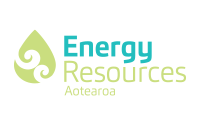New law on decommissioning could be costly overkill
A new law on decommissioning oil and gas fields passed by Parliament today has good intentions but is overkill, according to Energy Resources Aotearoa.
“We strongly support operators taking responsibility and paying the costs for decommissioning, which is what all good operators do,” says chief executive John Carnegie.
“The problem is these changes go way above and beyond what’s required to protect taxpayers.
“It’s pleasing to see a few changes made at select committee stage, but many of the major problems highlighted by expert submitters remain.
“There is still duplication and costly over-layering, like requiring financial security as well as payments into a decommissioning fund.
“Former permit holders can still be held liable for fields they transferred and no longer have any input into the management of fields. This is a fundamental change to business law, and like moving the goal posts after the ball has been kicked.
“This is another blow to investment confidence at a time when our energy sector really needs new investment. This year we’ve seen blackouts, job losses and high prices for users thanks to an energy shortage.
“From here we’ll work with officials to help the new regime work as well as possible.”
Background information – expert submissions on the Bill:
- Law Professor Philip Joseph found the bill to be retrospective and “constitutionally objectionable” and “raises a fundamental rule of law concern”, which would be damaging to business confidence.
- Justin Smith QC expressed serious concern about ‘trailing liability’, which means former permit holders can be liable for fields they have transferred and no longer control. He says it is “a truly novel and draconian provision in New Zealand”.
- Consultants Wood Mackenzie found the New Zealand proposals are far stricter than comparable jurisdictions and unnecessarily duplicative. They find that “such a strict regulatory system is not necessary to obtain a satisfactory level of taxpayers’ protection.”
- Economics consultants Castalia found the proposal’s costs to greatly outweigh the benefits with net costs to New Zealand of almost $1 billion, generating only 11 cents of economic benefit for every dollar of cost.
These reports are available as part of Energy Resources Aotearoa’s submission here.
